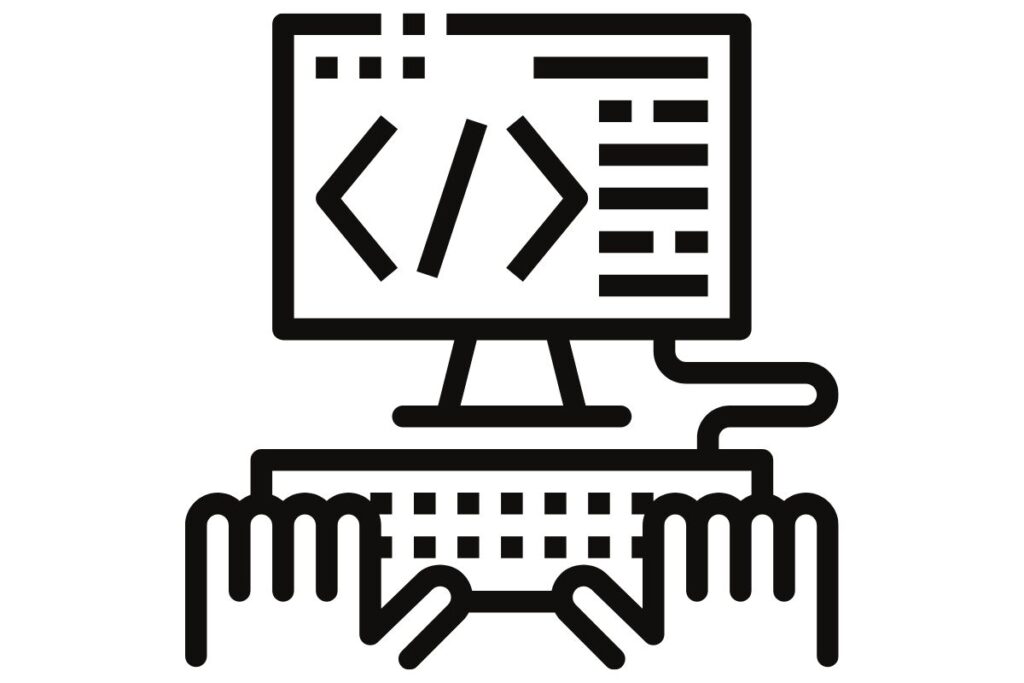The world of software engineering is vast, rewarding, and constantly evolving. As businesses and industries increasingly rely on technology, the demand for skilled software engineers has never been higher. If you’re looking to become a software engineer, you’re embarking on a journey that offers not only a promising career but also the opportunity to build solutions that shape the world.
This blog will guide you through the essential skills you need to master, the resources you should leverage, and actionable steps to kickstart your career as a software engineer.

What Does a Software Engineer Do?
Software engineers design, develop, test, and maintain software applications and systems. Their work spans a variety of domains, including web development, mobile app development, artificial intelligence, data analysis, and system architecture.
Key Responsibilities:
- Writing and testing code to create functional software.
- Collaborating with teams to design software systems.
- Debugging and optimizing existing software.
- Staying updated with new tools, technologies, and best practices.
Become a Software Engineer: Essential Skills and Resources
The world of software engineering is vast, rewarding, and constantly evolving. As businesses and industries increasingly rely on technology, the demand for skilled software engineers has never been higher. If you’re looking to become a software engineer, you’re embarking on a journey that offers not only a promising career but also the opportunity to build solutions that shape the world.
This blog will guide you through the essential skills you need to master, the resources you should leverage, and actionable steps to kickstart your career as a software engineer.
What Does a Software Engineer Do
Software engineers design, develop, test, and maintain software applications and systems. Their work spans a variety of domains, including web development, mobile app development, artificial intelligence, data analysis, and system architecture.
Key Responsibilities:
- Writing and testing code to create functional software.
- Collaborating with teams to design software systems.
- Debugging and optimizing existing software.
- Staying updated with new tools, technologies, and best practices.
Essential Skills for Software Engineers
To excel in software engineering, you need a combination of technical and soft skills. Here’s a breakdown:
1. Programming Fundamentals
A solid understanding of programming concepts is the foundation of software engineering. Focus on:
- Data Types and Variables: Learn how data is stored and manipulated.
- Control Structures: Master conditionals (if/else) and loops (for/while).
- Functions: Write reusable blocks of code.
- Object-Oriented Programming (OOP): Understand classes, objects, inheritance, and polymorphism.
2. Master One or Two Programming Languages
Choose a language based on your interests or desired domain. Popular options include:
- Python: Versatile and beginner-friendly, great for web development, data science, and automation.
- JavaScript: Essential for web development (both front-end and back-end).
- Java: Widely used in enterprise applications and Android development.
- C++: Excellent for performance-critical systems and game development.
3. Data Structures and Algorithms
These are critical for problem-solving and optimizing code. Study:
- Arrays, linked lists, stacks, and queues.
- Sorting and searching algorithms.
- Trees and graphs for hierarchical and network-based data.
4. Software Development Tools
Learn to use tools that streamline the software development process:
- Version Control: Git and platforms like GitHub or GitLab.
- Integrated Development Environments (IDEs): Visual Studio Code, IntelliJ IDEA, or PyCharm.
- Debugging Tools: Familiarize yourself with browser DevTools, command-line debuggers, and logging frameworks.
5. Web Development Basics
Even if web development isn’t your primary focus, understanding the web is beneficial:
- HTML, CSS, JavaScript: For building and styling web pages.
- APIs: Learn how to consume and create RESTful APIs.
- Frameworks: Explore React, Angular, or Vue.js for front-end development, and Node.js or Django for back-end.
6. Databases and SQL
Learn how to work with databases to store, retrieve, and manage data:
- Relational Databases: MySQL, PostgreSQL.
- NoSQL Databases: MongoDB, Firebase.
7. Testing and Debugging
Software quality is non-negotiable. Learn:
- Unit testing with frameworks like JUnit (Java) or PyTest (Python).
- Integration and system testing.
- Debugging techniques and tools.
8. Problem-Solving and Critical Thinking
Software engineering is about solving problems. Practice breaking down complex issues into manageable parts and thinking through solutions logically.
9. Soft Skills
- Communication: Collaborate effectively with teams and explain technical concepts to non-technical stakeholders.
- Time Management: Meet deadlines and manage multiple tasks efficiently.
- Adaptability: Stay open to learning new tools, languages, and methodologies.
Roadmap to Becoming a Software Engineer
Step 1: Learn the Basics
Start with beginner-friendly platforms to build foundational knowledge:
- freeCodeCamp: Offers free tutorials and certifications in web development and algorithms.
- CS50’s Introduction to Computer Science: A free course by Harvard that covers the basics of computer science.
Step 2: Choose a Specialization
Software engineering is diverse. Explore and pick a field that interests you:
- Web Development: Build websites and web applications.
- Mobile Development: Create apps for iOS and Android.
- Data Science: Work with data analysis and machine learning.
- Game Development: Design and develop video games.
- DevOps: Focus on automation and infrastructure management.
Step 3: Build Real-World Projects
Apply what you’ve learned by creating projects. This is the best way to gain hands-on experience and build a portfolio.
- Ideas for Beginners:
- Personal portfolio website.
- To-do list application.
- Weather app using an API.
- Advanced Ideas:
- E-commerce platform.
- Real-time chat application.
- Machine learning model for predictive analysis.
Step 4: Join Coding Communities
Engage with others to learn, share knowledge, and seek guidance:
- Stack Overflow: Ask and answer technical questions.
- Reddit (r/learnprogramming, r/coding): Join discussions and find resources.
- Discord Servers: Many coding communities have active servers for collaboration.
Step 5: Practice Problem-Solving
Sharpen your algorithmic thinking with coding challenges:
- LeetCode: Great for preparing for technical interviews.
- HackerRank: Practice coding problems by difficulty level.
- Codewars: Gamified coding challenges.
Step 6: Get Hands-On with Open Source
Contribute to open-source projects to gain practical experience:
- Browse repositories on GitHub and find beginner-friendly projects.
- Use tags like
good-first-issueto identify manageable tasks.
Step 7: Prepare for Interviews
Landing a software engineering job often involves rigorous interviews. Prepare by:
- Reviewing data structures and algorithms.
- Practicing system design for large-scale applications.
- Using mock interview platforms like Pramp.
Best Resources for Aspiring Software Engineers
Online Learning Platforms
- Coursera: University-level courses on programming, algorithms, and software engineering.
- Udemy: Affordable, beginner-friendly courses on various topics.
- Khan Academy: Interactive programming tutorials.
Books
- “Clean Code” by Robert C. Martin: Learn how to write maintainable, high-quality code.
- “Cracking the Coding Interview” by Gayle Laakmann McDowell: Essential for preparing for software engineering interviews.
- “Introduction to Algorithms” by Cormen et al.: A comprehensive guide to algorithms and data structures.
YouTube Channels
- Traversy Media: Covers web development tutorials.
- The Net Ninja: Tutorials on various programming topics.
- CS Dojo: Beginner-friendly coding lessons.
How to Stay Updated
Software engineering evolves rapidly. Stay current by:
- Following industry blogs like Medium or Smashing Magazine.
- Subscribing to newsletters like Hacker Newsletter.
- Attending tech meetups and conferences.

Conclusion
Becoming a software engineer is a challenging but rewarding journey. By mastering essential skills, leveraging the right resources, and consistently building projects, you’ll be well on your way to a successful career in software engineering.
Remember, the key to success is persistence and a willingness to learn. Embrace the challenges, stay curious, and enjoy the process of creating impactful software solutions. Happy coding!




